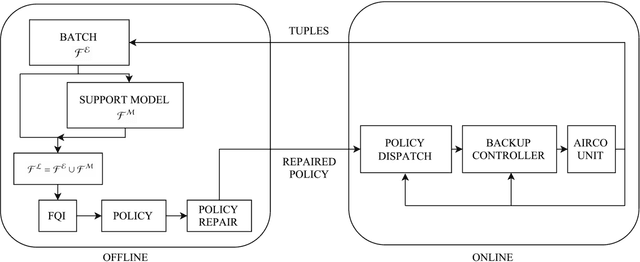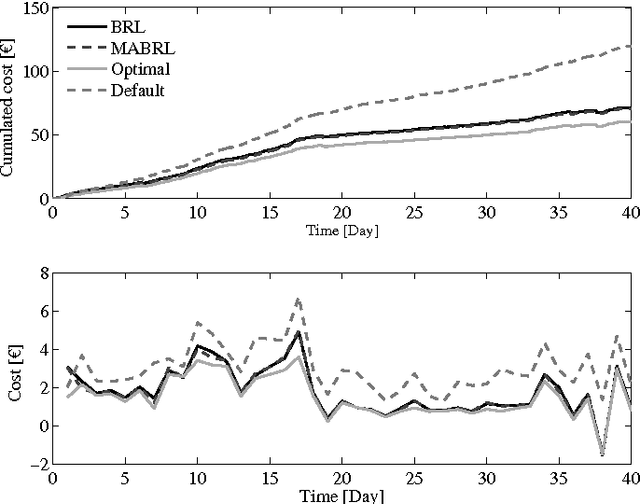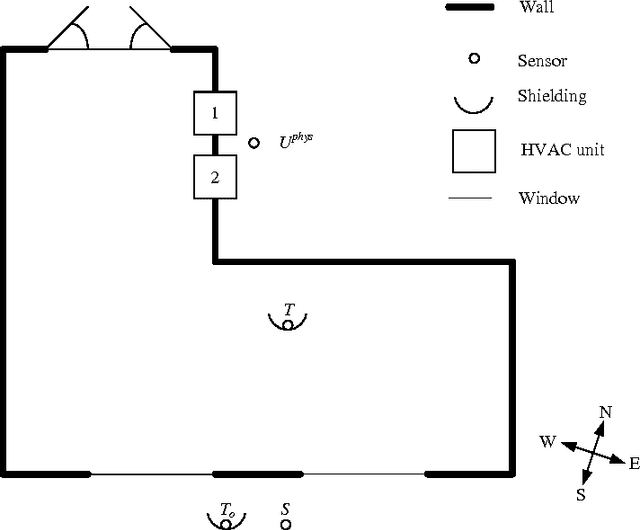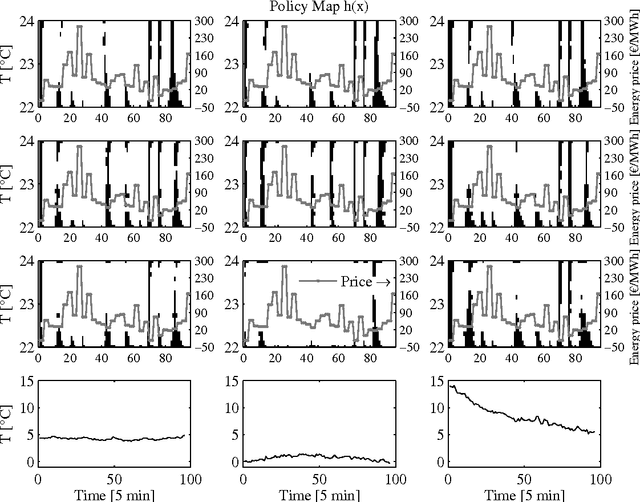Sandro Iacovella
Experimental analysis of data-driven control for a building heating system
Feb 16, 2016



Abstract:Driven by the opportunity to harvest the flexibility related to building climate control for demand response applications, this work presents a data-driven control approach building upon recent advancements in reinforcement learning. More specifically, model assisted batch reinforcement learning is applied to the setting of building climate control subjected to a dynamic pricing. The underlying sequential decision making problem is cast on a markov decision problem, after which the control algorithm is detailed. In this work, fitted Q-iteration is used to construct a policy from a batch of experimental tuples. In those regions of the state space where the experimental sample density is low, virtual support samples are added using an artificial neural network. Finally, the resulting policy is shaped using domain knowledge. The control approach has been evaluated quantitatively using a simulation and qualitatively in a living lab. From the quantitative analysis it has been found that the control approach converges in approximately 20 days to obtain a control policy with a performance within 90% of the mathematical optimum. The experimental analysis confirms that within 10 to 20 days sensible policies are obtained that can be used for different outside temperature regimes.
 Add to Chrome
Add to Chrome Add to Firefox
Add to Firefox Add to Edge
Add to Edge